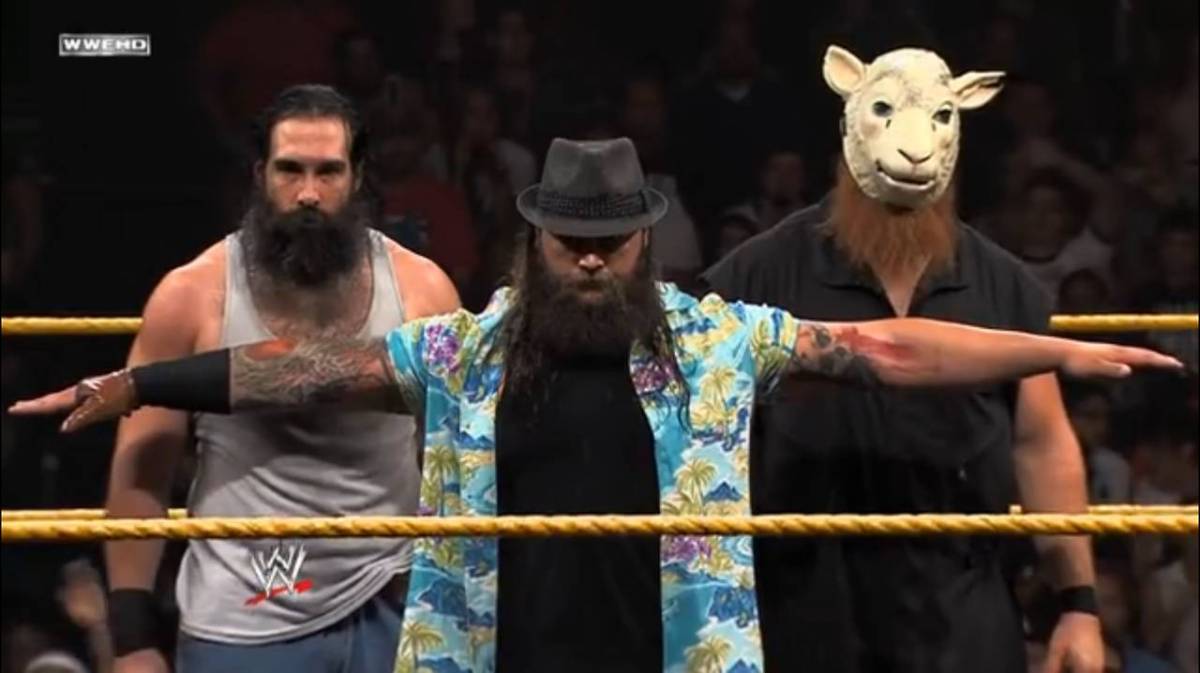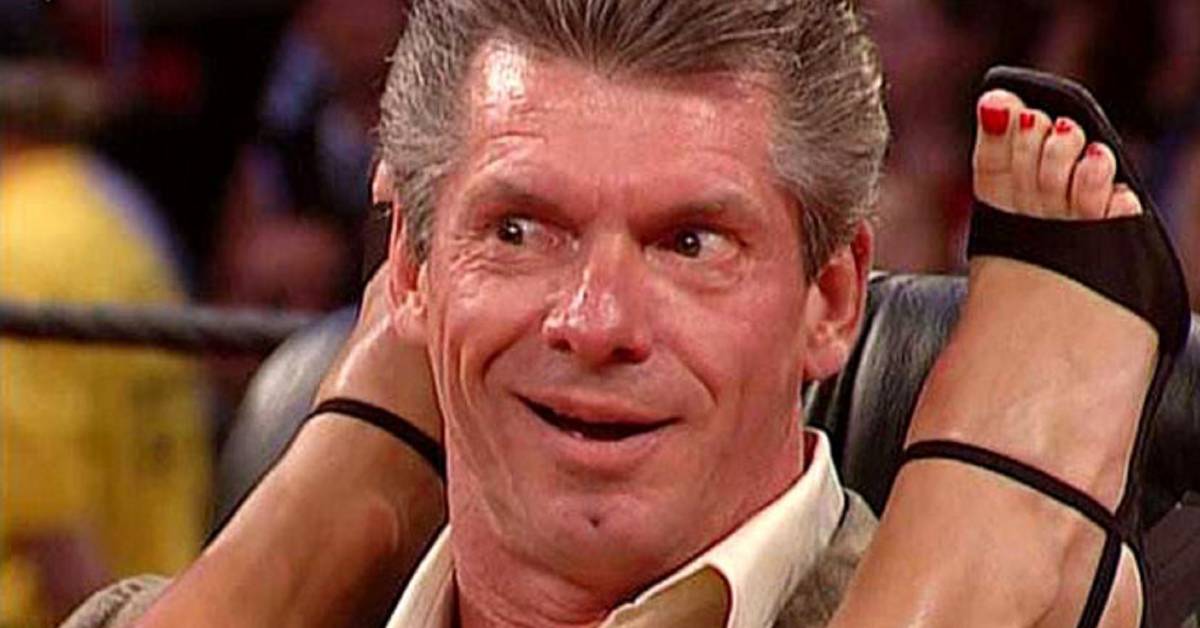Can we at this point finally admit that WWE are messing up Bullet Club? When three of the cult indie faction’s biggest and longest serving members signed with the evil empire earlier this year, the buzz was as electric as a superkick party. One of those three men, AJ Styles, has gone on to have the biggest debut year in WWE since probably Ric Flair. For Luke Gallows and Karl Anderson though, the whims of Vince McMahon have been less kind. It speaks to the corporation’s creative failure that they’ve fluffed the early months of these two men, and with it their version of Bullet Club as a whole.
Certainly, it’s not too late to make the WWE Bullet Club (or is it just ‘The Club’?) a legit threat once more. Throw them some momentum by reuniting them with Styles. Sign another major member to WWE. Any number of booking strategies could revitalise The Club. Even so, it’s hard not to think there are systemic stumbling blocks at play here. Sure, it all started so well for Guns and Gallows, but three unsuccessful tag title shots later there’s a flabby sense of inevitability about their fate.
So why have WWE made such a meal of the hottest wrestling faction since the NWO?
1. WWE suck at factions

wrestlingopinion.com
Not all factions, obviously. Just main event factions. Midcard groups like the Straight Edge Society and Right To Censor were fun in their own ways. But aside from DX and Evolution (both, coincidentally, involving Triple H) no faction has successfully gripped WWE’s main event the way Bullet Club pervades the likes of Ring of Honour and New Japan.
Because let’s be honest, Bullet Club only really works as a malign force encroaching on the main event. We’ll get back to it in a second, but that’s sort of their whole gimmick in New Japan. WWE’s history is littered with main event factions – JBL’s Cabinet, the Corporation – but only DX was ever so impactful that it still sells t-shirts today. The last time WWE did book something akin to an outside invading group, it was called The Nexus. If you’ve seen Summerslam 2010, you know how that ends.
2. A Key part of Bullet Club Doesn’t Translate

ProWrestlingDotBiz
Like we said, in New Japan the main gimmick of Bullet Club is that they’re invading foreigners (or Gaijin). They come from America and across the world to flout all the customs that make Japanese wrestling (or Puroseru) what it is. They cheat, interfere in each other’s matches, curse and disrespect the rules. Their matches can end in screwy finishes – a big deal in a wrestling culture which still presents its stars as legitimate athletes rather than cartoonish sports entertainers.
So have you worked it out yet? The very thing that makes Bullet Club so revolutionary in Japan is business as usual in WWE. True, there’s more to Bullet Club than cheating and interferences. There’s the maybe-tongue-in-cheek-maybe-not references to 90s wrestling and that impossible to manufacture alchemy of coolness not seen in wrestling since the NWO. Thing is, not a lot of this has been readily apparent in WWE – especially since the brand split.
3. Bullet Club aren’t Vince Guys

thesportster.com
If we accept that Bullet Club could only really work in WWE as an outside force chasing main event belts, we have to accept something else. The Club probably hasn’t been successful in WWE because Styles, Gallows and Anderson aren’t Vince’s guys.
In the history of WWE under Vince McMahon, it’s been something of an unwritten rule that the boss favours guys he himself had a hand in creating. Wrestlers who’ve made a name for themselves elsewhere, like Mick Foley, Chris Jericho, Eddie Guerrero and Rob Van Dam can come in and make a lasting impact, don’t get us wrong. But all three had to first work in the trenches of the midcard, so to speak. Guys like Batista, The Rock, John Cena and Randy Orton are WWE mainstays because they came up through WWE developmental. Incidentally, the latter group can boast more than four times as many Wrestlemania main event appearances as the former.
By the time the three former Bullet Club members have suitably paid their dues in WWE, it will be too late. Any momentum The Club had coming in has vanished. While Styles is dominating Smackdown Live right now as its top heel, on his own he’s just not Bullet Club. To succeed, The Club need an edginess to them, but without Vince’s backing they’re probably never going to get it.
4. Bullet Club is still better in Japan

TheSportster
Speaking of edges, one of the ways Bullet Club seems to stay cutting edge even after three years is precisely because they keep losing their top guys to WWE. If you’re not familiar with the history of the group let us explain: Bullet Club began under the leadership of Prince Devitt (the man we now know as Finn Balor) in 2013, but after a year or so the Irishman left for WWE. In his place founding member Karl Anderson led the gang, alongside new recruit AJ Styles. When these two left in January leadership fell to Kenny Omega.
What’s my point? By constantly having to replace top guys, Bullet Club have been forced to stay fresh. It’s how WWF won the Monday Night Wars, and right now Kenny Omega and The Young Bucks are just way cooler than the watered down version WWE are offering. Absolutely, you can tune in to Monday Night Raw and watch the ‘Bullet Club’ goof around in lab coats. Or you could go online and see The Elite superkick everything not glued down. Which brings us to our final point.
5. Bullet Club is not Sports Entertainment

wwe.com
Okay, strictly speaking there’s more than a little sports entertainment involved in how Bullet Club works. That’s sort of the point. In the thirty plus years since Vince McMahon launched his war on the wrestling territories, he has recreated the industry in his own image. Every wrestling promotion currently of note draws some degree of inspiration from the innovations McMahon brought to wrestling, even if they’re trying consciously not to be sports entertainment. Unfortunately, Bullet Club just doesn’t square with what McMahon understands his mix of wrestling and entertainment to be.
Take Gallows and Anderson parading around in lab coats studying pickle jars. Be honest – a few of you got a kick out of it. It’s funny in a goofball kind of way. The same goes for Styles’ recent segments with Dean Ambrose and James Ellsworth. But compare this to Adam Cole joining Bullet Club at Ring of Honor’s Global Wars earlier this year. Or Kenny Omega’s victory speech at the G1 Climax in August. There is no goofiness here. The stakes are what goes on in the ring, and they’re serious. Based on the journey of The Club in WWE, that’s not something the man who brought us the Gobbledy Gooker will ever understand.
Some of the coverage you find on Cultured Vultures contains affiliate links, which provide us with small commissions based on purchases made from visiting our site. We cover gaming news, movie reviews, wrestling and much more.



